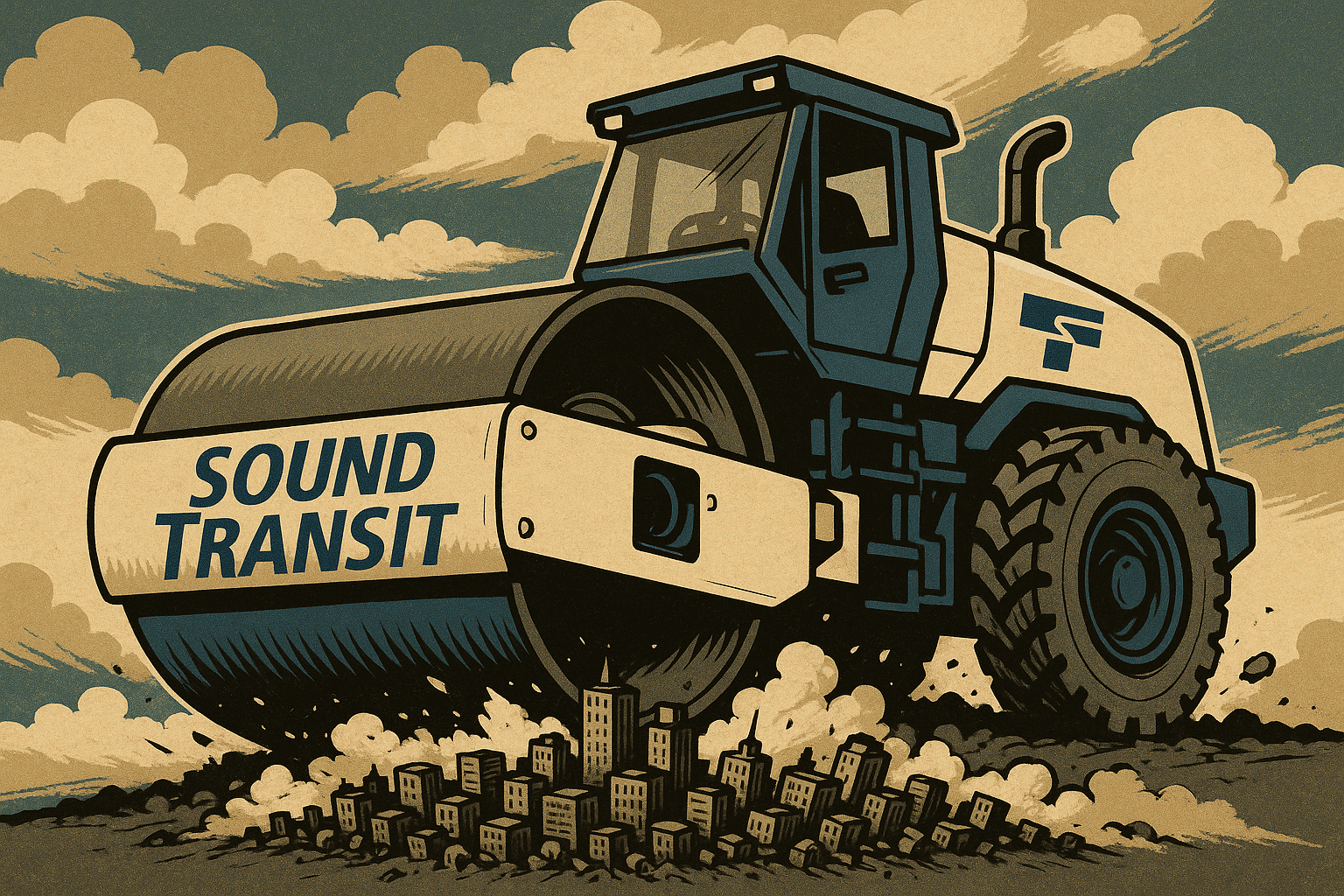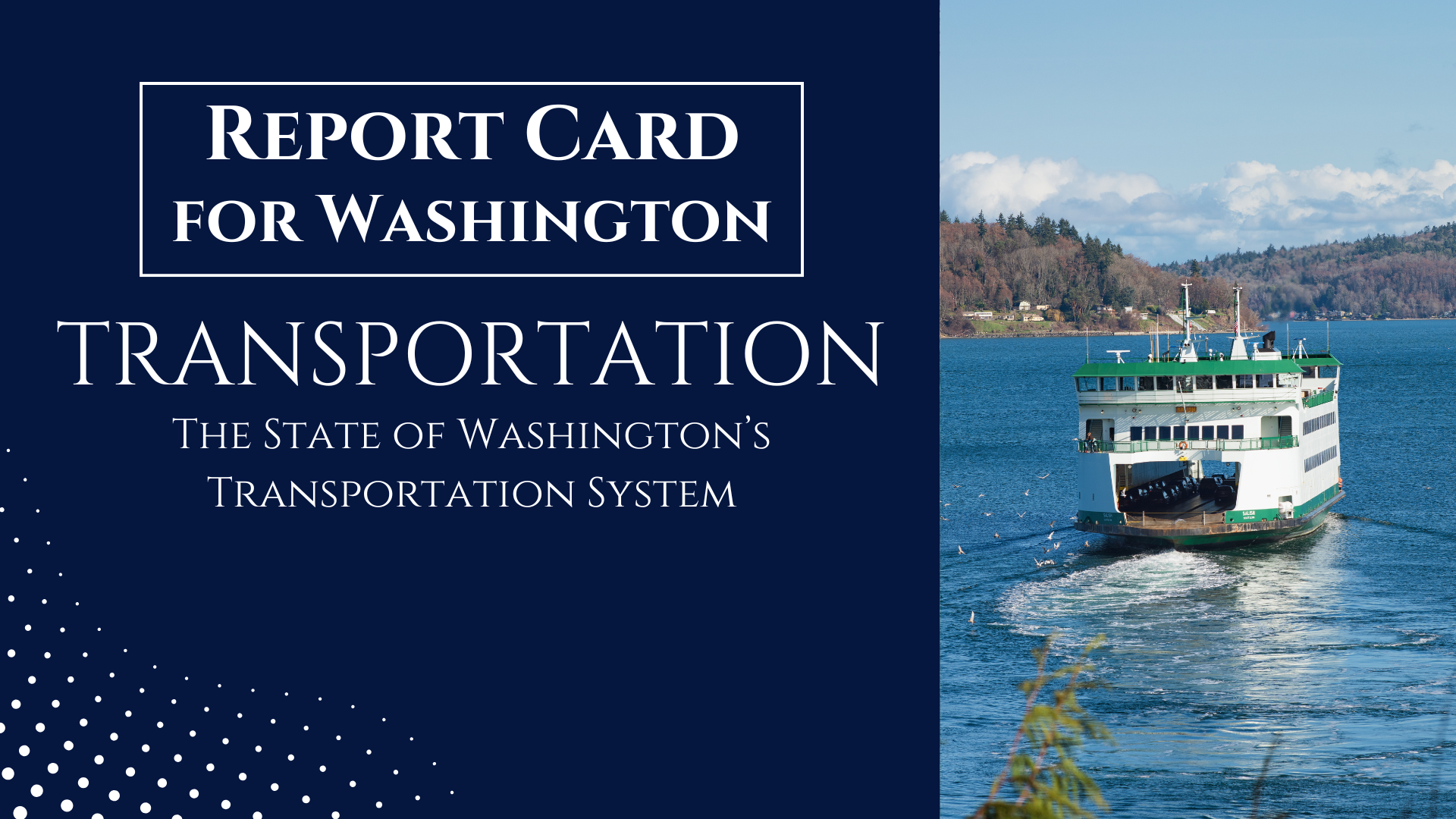Related Articles
Last year, a section of the Interstate 5 Bridge over the Skagit River collapsed when its overhead structure was hit by a truck, severing a vital transportation link between British Columbia and Seattle. High-level officials immediately announced they would get people moving again. Governor Inslee traveled to the site and issued a state of emergency to speed rebuilding efforts and create detours around the catastrophe, calling the collapse a “public disaster.” In less than 24 hours, Department of Transportation officials undertook plans to rebuild the bridge. The public needed help and state leaders answered the call.
Yet when other parts of the state’s vital transportation system fail they don’t receive the same dedication from elected leaders, especially when agency managers cancel State Ferry runs. Two years ago, officials canceled or delayed over 60 ferry runs between June and October, the busiest travel season of the year, because of restrictive labor policies. It happened again the following summer. The Seattle Times reported that last year, officials canceled dozens of sailings, saying their personnel policies meant they “ran out of workers.” This summer, ferry managers again left their passengers stranded, citing repairs, design flaws and tight labor rules.
These service cancellations were the result of conscience decisions made by state officials, not an accident like the Skagit Bridge collapse. But the severing of vital cross-sound links received only a fraction of the attention state leaders devoted to the unexpected accident that temporarily closed I-5. Former Governor Christine Gregoire once said the ferry system “needs as much attention as any road or bridge.” State policies, however, restrict and forbid workarounds often used in road closures.
In addition, state officials have shied away from providing permanent solutions, claiming budget woes, yet quickly find money to pay a portion of cost overruns on SR-520 construction. It’s no wonder many ferry passengers feel neglected and forgotten.
When asked “What do ferry riders want?” by the Kitsap Sun, one commuter said she was tired of waiting “in the cold wind, because the [ferry’s] crew didn’t show up on time.”
Another wanted “management and labor to work together” to solve staffing problems. The public simply wants workers to show up as promised.
Powerful state officials kept their promise to quickly rebuild the Skagit Bridge. They worked to temporarily eliminate costly and time-consuming policies to move the project forward. Similarly, leaders could eliminate artificial policies and monopolies that stifle efficiency and squash creative solutions at the State Ferries.
To start, lawmakers could allow private marine operators to pick up and drop off passengers at state ferry docks. The state could contract with Argosy Cruises or other ship operators to fill in when the state is unable to carry passengers. In addition, the state could tap private operators to increase ferry service during the busy morning and evening commutes.
To ease the artificial worker shortage, the state could develop a pool of trained marine workers able to report for work at a moment’s notice. Puget Sound supports a thriving marine industry and there is no lack of skilled people willing to work. For most businesses, worker shortages are not a problem. Yet restrictive rules don’t allow state managers to adjust to changing conditions and keep the ferries running.
Another improvement would be to remove the requirement that all ferries be built in Washington state. The State Auditor found Washington’s ferry construction costs “are among the largest and most expensive vessels to build” compared to other ferry systems. High capital costs compete with money for operations that could help provide a reliable trip for every ferry customer.
The Skagit Bridge collapsed because a truck collided into the bridge. Ferry cancellations are primarily caused by artificial and self-imposed policies that increase costs, leaving passengers on the dock. Eliminating needless rules and labor restrictions would improve cross-sound ferry service, and keep a system moving that that is as vital to the public as any bridge or highway.





